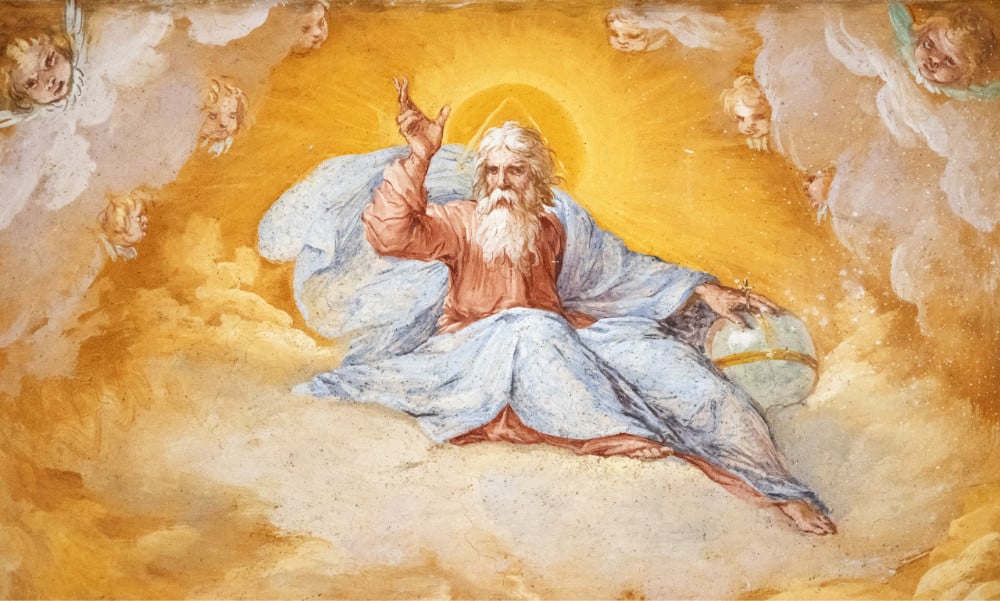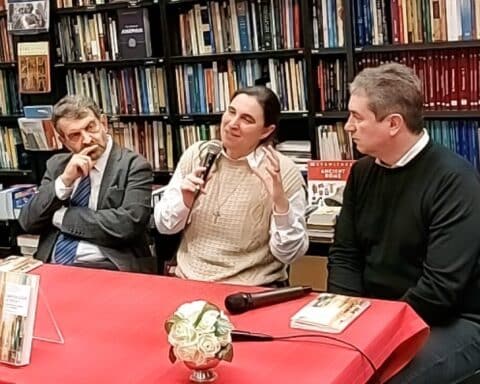
— Joe Sevic, via email
Answer: The full verse we must consider is: “No one knows the Son except the Father, and no one knows the Father except the Son and anyone to whom the Son wishes to reveal him” (Mt 11:27).
In surveying the commentaries of the early Church Fathers, they emphasize the verse as setting forth the divinity of Christ and his equality with the Father. For example, St. John Chrysostom says: “By saying that only He knows the Father, He shows covertly that He is of one substance with the Father. As though He had said, What wonder if I be Lord of all, when I have something yet greater, namely to know the Father and to be of the same substance with Him?” (“Catena Aurea,” cf. Mt 11:27). And while the Fathers do not directly address your concern it follows that the Son of God has plenary authority in all things, including our faith. No one can have the supernatural gift of faith except through Jesus and no one can come to increasing and deeper knowledge of the Father except through Jesus and the grace of his Holy Spirit.
But, as you ask, does this imply that there are some to whom Jesus does not wish to reveal the Father? There are two possible answers. The first is to be cautious about reading too much into what Jesus says. Fundamentally, as the Fathers imply, Jesus is saying that anyone who has any degree of supernatural faith has him (Jesus) to thank for it. Beyond this we should not read into it that Jesus is unwilling to reveal the Father to some, only that all who come to the Father come only through him.
A second answer accepts that the Lord Jesus may not wish to reveal the Father to some. For example, some are uninterested and resist the call to come to God. Should Jesus say to them, “Well, too bad, I am going to show him to you anyway?” Perhaps not. There may also be something at work here regarding the “discipline of the secret” (disciplina arcanis), in which the ancient Church, due to persecution and also to a common outlook, did not expose religious rituals to uninitiated eyes. Jesus says elsewhere, “Do not give what is holy to dogs, or throw your pearls before swine, lest they trample them underfoot, and turn and tear you to pieces” (Mt 7:6). In other words, holy things should be shared with those who are prepared to see and hear them. Pigs only value what they can eat; they have no regard for pearls. And dogs make no distinction between regular meat and the blessed meat of a passover lamb. People can be like this, trampling underfoot and scoffing at holy truths, or tearing apart what is holy, having no regard for its true value. Hence, the early Church carefully prepared catechumens before they were allowed to enter into the sacred mysteries.
Applying this to Jesus, why would he reveal to someone the heavenly Father if all they would do is scoff, mock or undervalue his glory? Though Jesus wants to save everyone, he does not will to reveal the Father (i.e., draw them into a deeper union with him) unless they are ready. One must repent in order to receive the Gospel; one must reject Satan and sin in order to be baptized and grow in faith. So, prior to receiving the grace of supernatural Faith, Jesus first chooses to offer the grace of repentance. Then, repentance having been secured, he chooses to reveal the Father.
Forgiveness of venial sins
Question: Are venial sins forgiven at the beginning of each Mass?
— Paul VanHoudt, Erie, Colorado
Answer: Yes, presuming that we have the proper contrition, the absolution by the priest does remit venial sins. St. Thomas also teaches that the reception of holy Communion, presuming we are in a state of grace, forgives venial sins: “No other sacrament has greater healing power; through it sins are purged away” (Homily for Corpus Christi). A preface in the Roman Missal says, “As we drink his blood that was poured out for us, we are washed clean.”
Msgr. Charles Pope is the pastor of Holy Comforter-St. Cyprian in Washington, D.C., and writes for the Archdiocese of Washington, D.C. at blog.adw.org. Send questions to msgrpope@osv.com.





